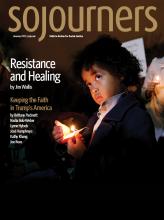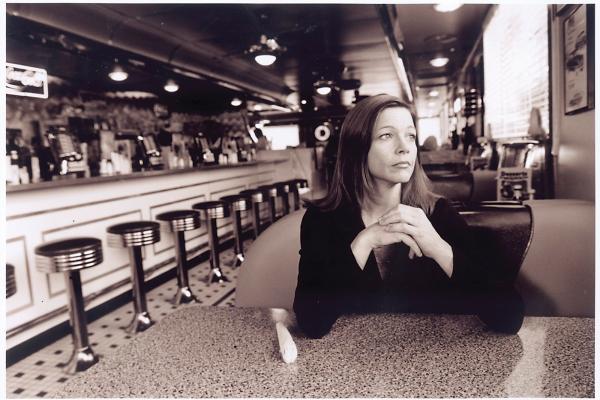I’m inspired and troubled by the stories I have heard.
In the blue light of evening all boundaries get blurred.
And I believe in something better, and that love’s the final word,
And that there’s still something whole and sacred in the world.
—“Help in Hard Times,” by Carrie Newcomer
CARRIE NEWCOMER IS a Quaker singer-songwriter whose music is inspired by hope and the great human potential for peaceful coexistence. The Beautiful Not Yet is the title of both her newest album (Available Light Records) and an accompanying book of poems, essays, and lyrics. She is also working on a spoken word and music collaboration with Parker J. Palmer (author of Let Your Life Speak and Healing the Heart of Democracy) called “What We Need Is Here: Hope, Hard Times, and Human Possibility,” which is scheduled to premiere in spring 2017.
Newcomer lives in southern Indiana when she’s not traveling the world singing her folk and gospel-infused tunes and engaging social and environmental justice issues.
She was interviewed for Sojourners by John Malkin, a musician, journalist, and radio host in Santa Cruz, Calif., whose books include Sounds of Freedom: Musicians on Spirituality and Social Change and The Only Alternative: Christian Nonviolent Peacemakers in America.
John Malkin: When did you start making music?
Carrie Newcomer: I picked up a guitar when I was in my early teens and learned my first three chords and started writing songs. I’ve always loved the combination of language and music.
In the liner notes of The Beautiful Not Yet, you mention that many of these songs were written on trains and planes. How has travel been a part of your life and music?
Read the Full Article

